The US economy is pulling off something historic

The recent economic report indicates that the U.S. economy is experiencing solid growth, with a reported annualized GDP increase of 2.8% in the second quarter of 2024. This growth is attributed to robust consumer spending, which constitutes about two-thirds of the economy, and increased business investment. Inflation is also trending downward, moving closer to the Federal Reserve's target of 2%, which suggests a potential "soft landing" for the economy—an outcome where inflation stabilizes without triggering a recession[1].
The current economic conditions have significant implications for the real estate market:
1. Consumer Confidence and Spending: As consumer spending remains strong, it can lead to increased demand for housing. However, despite the positive economic indicators, many Americans are still facing challenges in the housing market due to high home prices and elevated mortgage rates, which continue to hinder affordability and access to homeownership[1].
2. Interest Rates: The Federal Reserve is expected to hold interest rates steady in the short term, with potential cuts on the horizon if inflation continues to be controlled. Lower interest rates could make mortgages more affordable, potentially stimulating demand in the housing market. However, the current high rates have already made purchasing homes out of reach for many buyers[1].
3. Investment Trends: The increase in business investment could indicate a growing economy, which often correlates with a stronger real estate market. As businesses expand, they may require more commercial space, and this could lead to increased demand for both residential and commercial real estate[1].
In summary, while the overall economic growth and potential for lower interest rates may eventually benefit the real estate market, current high prices and mortgage rates are significant barriers for many potential homebuyers.
The current economic conditions have significant implications for the real estate market:
1. Consumer Confidence and Spending: As consumer spending remains strong, it can lead to increased demand for housing. However, despite the positive economic indicators, many Americans are still facing challenges in the housing market due to high home prices and elevated mortgage rates, which continue to hinder affordability and access to homeownership[1].
2. Interest Rates: The Federal Reserve is expected to hold interest rates steady in the short term, with potential cuts on the horizon if inflation continues to be controlled. Lower interest rates could make mortgages more affordable, potentially stimulating demand in the housing market. However, the current high rates have already made purchasing homes out of reach for many buyers[1].
3. Investment Trends: The increase in business investment could indicate a growing economy, which often correlates with a stronger real estate market. As businesses expand, they may require more commercial space, and this could lead to increased demand for both residential and commercial real estate[1].
In summary, while the overall economic growth and potential for lower interest rates may eventually benefit the real estate market, current high prices and mortgage rates are significant barriers for many potential homebuyers.

Categories
Recent Posts

Protecting Your Wealth: Real Estate Strategies During Economic Uncertainty

How to Protect Your Wealth During Economic Uncertainty: The Strategic Role of Multifamily Real Estate

Homeowners: Don’t Miss This Prime Selling Window

The Perfect Storm Brewing in the Real Estate Market: Why Now Is the Ideal Time to Buy

Homeownership: A Powerful Shield Against Economic Uncertainty and Inflation

The Strategic Investor's Guide to DSCR Loans

The Shifting Tide: Why Today's 6.11% FHA Mortgage Rates Signal a Buyer's Market

Why Home Sales Are Rising

Why Buying a Home in 2025's Uncertain Economy Could Be Your Best Financial Move

Maximizing Home Equity: Seizing a Once-in-a-Lifetime Financial Opportunity
